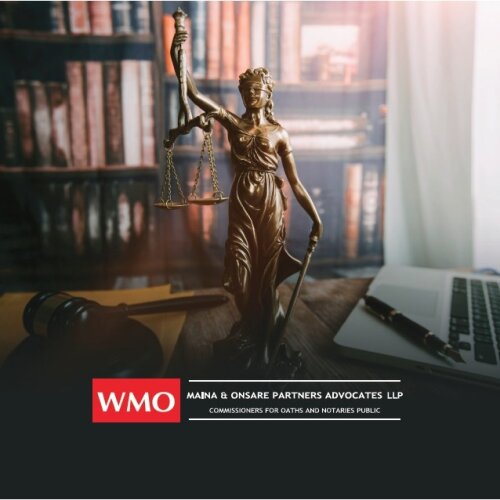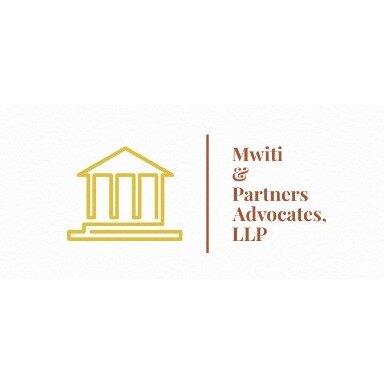Best Child Support Lawyers in Nairobi
Share your needs with us, get contacted by law firms.
Free. Takes 2 min.
Free Guide to Hiring a Family Lawyer
List of the best lawyers in Nairobi, Kenya
Legal guides written by Adroit Law LLP:
- Kenya Launches Digital Nomad Visa: A Gateway for Remote Workers
- Navigating the Payment System License Maze in Kenya
- Navigating the Complexities of Mining Licenses and Permits in Kenya: A Look into Artisanal and Large-Scale Operations
About Child Support Law in Nairobi, Kenya
Child support law in Nairobi, as well as other parts of Kenya, is governed by the Constitution of Kenya, the Children Act, and various international instruments that Kenya has ratified like the Convention on the Rights of the Child. These laws provide that a child has the right to parental care and protection, which includes equal responsibility of the mother and father to provide for the child, whether they are married to each other or not. Child support laws are aimed at ensuring the welfare, emotional, and physical well-being of the child, as well as ensuring they have access to basic needs such as food, shelter, and education.
Why You May Need a Lawyer
You may need a lawyer in matters of child support if you are engaging in a separation or divorce process and children are involved. Legal aid will assist in drafting a maintenance order, negotiating the terms of child support, or representing you in court should disagreements regarding child support arise. Lawyers can also help ensure that all child support payments have been appropriately calculated and are just and fair. If a parent defaults in paying child support, a lawyer can guide you through the process of enforcing the child support order.
Local Laws Overview
The Children Act of Kenya makes provisions for parental responsibility, fostering, adoption, and custody of, maintenance, and protection of children. It specifies that both parents have an equal duty to maintain the child, whether they are married to each other or not. Courts usually determine the amount to be contributed by each parent depending on the needs of the child and the financial capability of each parent. Non-payment of child support can lead to enforcement measures, including civil imprisonment.
Frequently Asked Questions
Question 1: Who is responsible for paying child support?
Under Kenyan law, both parents have an equal responsibility to provide for the child. This responsibility is irrespective of whether the parents are married, separated, or divorced.
Question 2: What happens if a parent refuses to pay child support?
If a parent refuses to pay child support, a court order can be enforced. This could include attachment of earnings, charging orders, or even civil imprisonment in some cases.
Question 3: Can child support be modified?
Yes, a child support agreement can be modified if there is a change in circumstances such as the financial ability of a parent or the needs of the child.
Question 4: Does cohabitation affect child support?
Cohabitation alone does not affect child support. What matters is the type of relationship that the child has with the adults involved.
Question 5: Until what age is a child entitled to support?
Under Kenyan law, a child is entitled to support until they reach the age of eighteen, or beyond this age if they are still in school or unable to support themselves due to illness or disability.
Additional Resources
Several organizations and governmental bodies offer help in regards to child support in Nairobi, Kenya. These include The Children's Department, Children’s Legal Action Network (CLAN), Kituo Cha Sheria, and CRADLE. The Federation of Women Lawyers (FIDA) Kenya also offers some resources on child maintenance.
Next Steps
If you need legal assistance in matters of child support, you should consult with a lawyer experienced in family law to guide you on how to proceed. If you cannot afford one, there are several organizations that provide pro bono legal services, which you can contact for assistance.
Lawzana helps you find the best lawyers and law firms in Nairobi through a curated and pre-screened list of qualified legal professionals. Our platform offers rankings and detailed profiles of attorneys and law firms, allowing you to compare based on practice areas, including Child Support, experience, and client feedback.
Each profile includes a description of the firm's areas of practice, client reviews, team members and partners, year of establishment, spoken languages, office locations, contact information, social media presence, and any published articles or resources. Most firms on our platform speak English and are experienced in both local and international legal matters.
Get a quote from top-rated law firms in Nairobi, Kenya — quickly, securely, and without unnecessary hassle.
Disclaimer:
The information provided on this page is for general informational purposes only and does not constitute legal advice. While we strive to ensure the accuracy and relevance of the content, legal information may change over time, and interpretations of the law can vary. You should always consult with a qualified legal professional for advice specific to your situation.
We disclaim all liability for actions taken or not taken based on the content of this page. If you believe any information is incorrect or outdated, please contact us, and we will review and update it where appropriate.

















